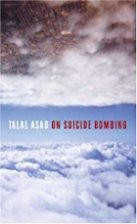Two new books arrived in my mail this morning. One I had purchased, the other was a gift.
 Having skimmed a few pages of each I am already well pleased with my new acquisitions. Stephanie Fisher once commented on one of these, Muslim Secular Democracy, edited by Lily Zubaidah Rahim, and that has only just been released:
Having skimmed a few pages of each I am already well pleased with my new acquisitions. Stephanie Fisher once commented on one of these, Muslim Secular Democracy, edited by Lily Zubaidah Rahim, and that has only just been released:
It seems to me, from the interview, your summary and the blurb on Amazon, that what she claims is beyond refute. It’s historically demonstratable and what I once thought was commonly understood. I do wish those who dismiss Islam with assumptions about a ‘heart’ etc, would honestly read a bit of history. The more I dwell on it the more convinced I am that this book, combined with Espositos must be read for the sake of a future – for god’s sake world, read them and understand….:
Stephanie’s remarks about reading and knowing a little history turn out to be a most pertinent message of both my new books.
Another commenter recently asserted, in effect, that the failure of Muslim populations of the Middle East to change their governments demonstrated that they loved oppressive and dark religious authoritarian rule more than freedom and an open society. I wish such readers could have a look over my shoulder as I read the first page of the introduction to Muslim Secular Societies:
In the wake of the political sandstorms unleashed by the “Arab Uprisings,” almost every Arab state faces serious political challenges and pressures to reform. Authoritarian governance, both Islamic and secular, has been resoundingly rejected by the Muslim masses. Also resoundingly rejected by the Muslim masses are the violent methods of militant Islamists. (p. 1)
Turn the page and we read this:
Recent global World Values, Gallop Poll, and Pew surveys consistently indicate that the majority of Muslims reject assertive secularist states (France, Kemalist Turkey) based on a rigid separation of the state and religion. But they also reject the call of conservative Islamists and political elites who demand that the state be governed by comprehensive sharia.
Consistent with the [moderate, centrist, or middle path] political sentiments sweeping the Muslim World, this book attempts to move beyond “black and white” perspectives on state-religion relations . . .
This book also strives to highlight the non-Arab Muslim World — where most Muslims reside and where the push for an inclusive Muslim secular democracy has made significant progress.
 The other book is On Suicide Bombing by anthropologist Talal Asad was published 2007. (I’m scheduled to fly interstate this coming weekend. Perhaps I should not be found with this title in my carry-on luggage.)
The other book is On Suicide Bombing by anthropologist Talal Asad was published 2007. (I’m scheduled to fly interstate this coming weekend. Perhaps I should not be found with this title in my carry-on luggage.)
In his first chapter Asad writes something that for me shines a light on why there is such widespread and disproportionate fear of “Islamic terrorism” and why this fear has fanned anti-Muslim bigotry (Islamophobia) among so many.
Why, throughout so many Western societies today, is the term “terrorism” so prominent when talking about certain kinds of contemporary violence?
One suggestion has been that the previous violent groups in Europe were all operating within the frame-work of the nation-state and were therefore insiders; the present adversaries (Muslim terrorists) are outsiders — even when they are citizens of the liberal democratic state or inhabitants of its governed territories.
On the other hand, however reprehensible it was to liberals, the violence of Marxists and nationalists was understandable in terms of progressive, secular history.
The violence of Islamic groups, on the other hand, is incomprehensible to many precisely because it is not embedded in a historical narrative — history in the “proper” sense. As the violence of what is often referred to as a totalitarian religious tradition hostile to democratic politics, it is seen to be irrational as well as being an international threat. (p. 7)
There’s much more I’d like to share here but it will have to wait.
If you enjoyed this post, please consider donating to Vridar. Thanks!

-Only in Tunisia, Libya, Bahrain, and, possibly, Yemen. Assad’s still alive and kicking, with his regime’s forces being forced out of only one provincial capital. The Kings Abdullah are still around, as is the Sultan of Oman. If any government is “resoundingly rejected” by its subjects, it falls within weeks. That hasn’t happened to most authoritarian regimes in the Muslim world.
The bulk of the Muslim world are not Arabs. You are overlooking Indonesia, Malaysia, Pakistan, Turkey, Iran . . . . But even among the Arabs how anyone can omit Egypt I don’t know. The final outcome of the revolution there is still to be decided, but there can be no doubt that the Egyptian (Muslim) masses have resoundingly rejected authoritarian governance. (The popular uprising is not in contest with Muslims but between liberal and moderate/conservative Muslims.)
The world would be a very different place if only that were true. Such governments all too often manage to hold on to power for years through state violence and terror. We saw that with Saddam’s regime, and the Shah’s, and now Assad’s.
The Syrian masses came out against Assad regime but have since been forced into either refugee status, staying low like mushrooms or even fighting against Assad’s enemies now since their movement was hijacked by Sunni Islamist militants. My understanding is that those popular non-violent demonstrations have been replaced by Sunni and al-Qaeda-like or linked militants backed by Saudi Arabia and Qatar and co in efforts to have Syria’s regime replaced by another like their own.
Saudi Arabia, for example, is seeing its monarchy being pressured into granting reforms and rights, in small doses to be sure, but nonetheless under pressure from mounting critical movements within. They have had to couple these slow reforms with brutal repression of any sign of popular uprising, too. Bribes are also helping, at least for now. But there are strong reformist social movements now active within Saudi Arabia that are pressuring the monarchy to slowly yield in the directions of women’s rights and civil rights that are further discussed in Rahim’s book.
Ditto in Jordan.
“Authoritarian governance, both Islamic and secular, has been resoundingly rejected by the Muslim masses. Also resoundingly rejected by the Muslim masses are the violent methods of militant Islamists.” Exactly. I particularly want Lily’s book but it’s over $100 so I’m still waiting for the paperback. Twice that amount would get me to Sydney to hear her lecture and talk. Looking forward to your further thoughts on both books. I really do hope they are read and not overlooked or dismissed, to open closed minds with the evidence. Until they do those already with assumptions and convictions about what Islam ‘is’, are unlikely to buy the books.
I wrote non sense… should’a writ “I really do hope they are read, and not overlooked or dismissed, to open minds with the evidence.”